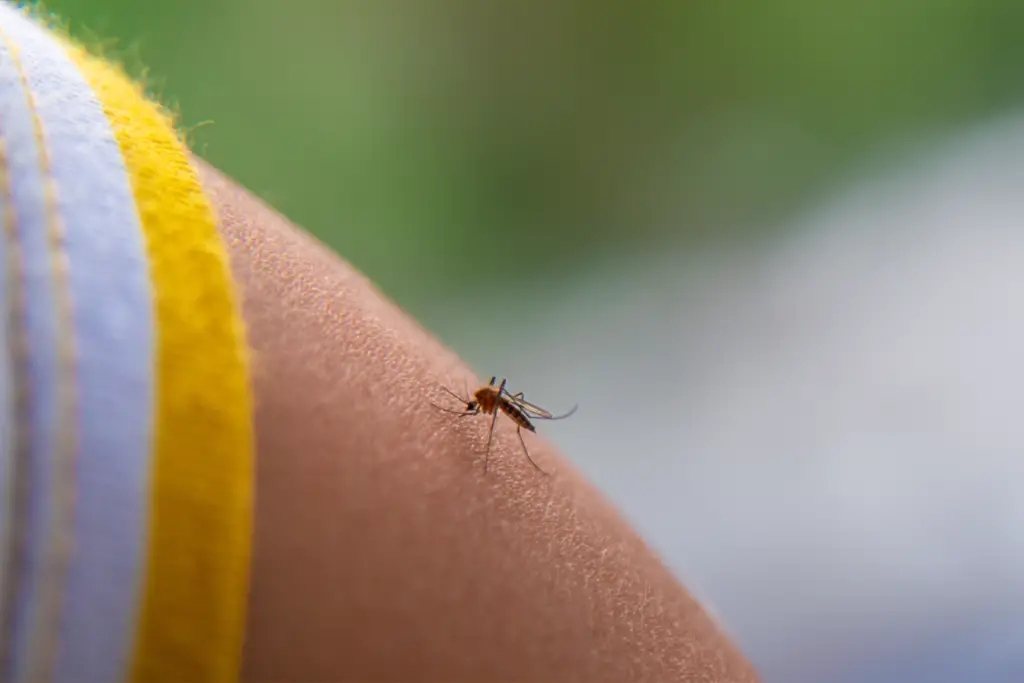When it comes to repelling bugs, you’ve probably heard a variety of home remedies touted as the next best solution. Coconut oil is one such solution that might have popped up in your search for a natural repellent. The truth is coconut oil does have properties that repel certain insects, but it’s not a panacea for all your bug problems. Interestingly, it can both attract and repel different types of bugs depending on various factors such as concentration and the type of insect.
Recent research suggests that coconut oil contains specific fatty acids that are effective at keeping away blood-sucking insects like mosquitoes and ticks. These compounds have been found to have a long-lasting repellent effect which could make coconut oil a viable alternative to synthetic repellents like DEET. However, before you drench yourself in coconut oil, it’s important to note that it might not work for all bugs and, in some cases, could potentially attract pests, like ants, which are drawn to its scent.
While considering coconut oil as a bug repellent, it’s worth knowing how to use it properly to minimize your chances of attracting unwanted critters. The key could lie in the amount you use and how you apply it. If you’re curious about swapping out your conventional bug spray for something more natural, exploring the efficacy of coconut oil and potentially incorporating it into your pest control routine could be an interesting experiment.
Coconut Oil and Insects
When considering coconut oil as a natural alternative to chemical repellents, you’ll find it can have varying effects on different insects.
Attraction Factors for Bugs
Some insects are naturally drawn to the scent of coconut oil because it’s a food source. For instance, a study suggests that coconut oil may attract certain species of ants if used in large quantities in places like your hair or skin. The fatty acids found in coconut oil could be the enticing factor.
Types of Bugs Attracted or Repelled
On the flip side, some compounds in coconut oil have been found to repel insects more effectively than DEET, a commonly used chemical in insect repellents. Notably, mosquitoes and other blood-sucking insects may be deterred by these compounds. A small study points out that a coconut scent may repel mosquitoes, suggesting that coconut oil could be a key ingredient in your bug repellent arsenal.
Usage of Coconut Oil
Coconut oil has versatile uses, ranging from culinary delights to personal care, but in the context of repelling or attracting bugs, how you use it matters greatly.
In Homes
In your home, coconut oil can serve as a natural moisturizer or as an ingredient in homemade bug repellents. When mixing coconut oil with essential oils, such as geranium, you create a pleasant-smelling mixture that may help keep various insects at bay.
In Outdoor Areas
Using coconut oil in outdoor areas, like your garden or patio, may double as a mild insect repellent. Evidence shows that compounds derived from coconut oil might be effective against certain bugs, possibly providing you with a more comfortable outdoor experience without relying solely on products containing DEET.
Preventative Measures
When considering coconut oil as a bug repellent, it’s crucial to focus on how you store and apply it, as well as be aware of alternative bug repellents that can be used in conjunction with or instead of coconut oil.
Proper Storage and Application
Storage: Keep your coconut oil in a cool, dry place to maintain its efficacy. If coconut oil liquefies, simply place it in a cooler environment until it solidifies again.
Application: Apply the oil evenly on exposed skin, avoiding any sensitive areas such as around the eyes or broken skin. Reapply every few hours for continued protection, as the compounds derived from coconut oil are effective against pests like mosquitoes and ticks.
Alternative Bug Repellents
- DEET-Based Repellents: While DEET is a widely used bug repellent, some studies suggest that certain compounds in coconut oil may be more effective.
- Picaridin: An alternative that can be less irritating to the skin and similarly effective.
- Natural Oils: Other natural oils, such as citronella, eucalyptus, and peppermint oil, are also options but may require more frequent application.
Frequently Asked Questions
Coconut oil has garnered attention for its potential in repelling mosquitoes, a common concern for those seeking natural alternatives to chemical repellents. Let’s uncover its effectiveness and proper usage for repelling these critters.
What are the effects of coconut oil on mosquito attraction?
Coconut oil contains compounds that have been shown to repel mosquitoes, decreasing the likelihood of them being attracted to your skin. Using coconut oil as a repellent may serve as a natural alternative to DEET-based products.
Can coconut oil be effectively used as a mosquito repellent?
Yes, studies have indicated that certain compounds in coconut oil can serve as an effective mosquito repellent. These compounds may provide an extended duration of protection comparable to DEET, offering a more natural solution for bug bite prevention.
How can one apply coconut oil to repel mosquitos?
To use coconut oil as a mosquito repellent, apply a thin layer directly onto the skin, covering all exposed areas that might be prone to bites. Reapply as necessary, especially after swimming or excessive sweating to maintain its repelling effect.
Are there any insects that are known to be attracted to coconut oil?
While coconut oil can repel certain insects, there is no strong evidence suggesting it attracts bugs. However, insects are diverse, and some may be drawn to any kind of oil, so awareness and observation in different environments are recommended.
What essential oils are best for preventing bug bites?
Alongside coconut oil, essential oils like citronella, eucalyptus, and tea tree oil have been recognized for their bug repelling properties. Using these oils in combination can enhance the prevention of bug bites.
Are there any scientific studies supporting coconut oil as a mosquito repellent?
Scientific research supports the use of coconut oil as a mosquito repellent. A study by the USDA found that certain fatty acids in coconut oil are more effective at repelling blood-sucking insects than DEET, a common active ingredient in many repellents.
Driven by a passion for those tiny creatures that rule our world, we at Bug Domain strive to be your go-to resource for information on insects.




